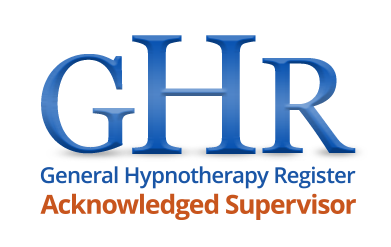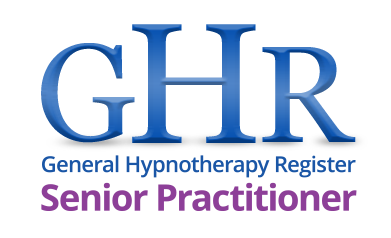Addictions Recovery
Are you concerned about an excessive, or compulsive use of a substance, or continued participation in a certain behaviour? Do you continue this behaviour even when it is clear that IT, the substance or behaviour mignt be causing you harm?
Have you tried to stop whatever IT is, and just cannot? Or, have you stopped IT for a while and then fallen back into the same old destructive pattern?
Another useful question to ask yourself might be – Is my use of IT - this substance or behaviour costing me more than money? Is IT affecting my self-esteem, my self-confidence, my relationships, my health, my work, my hope, my life?
If the answer to any of these questions is yes - then you might be dependent or addicted.
People don't usually set out to become addicts. If you are relying or dependent on some substance or process, it may be that you are trying to ‘fix’, forget or solve something in your life, for example shyness, isolation, trauma, loss, anger, social anxiety etc. It may be your attempted solution has become the problem.
Any addiction, substance or process, can be a very effective but destructive way of escaping or numbing out from overwhelming or unbearable experiences.
With these questions in mind, take a moment to imagine how your life would be if you could overcome your dependency problem and its roots. Whatever IT is you are addicted to or dependent on - just take a moment now. Picture your world free of the burdens of addiction that might be holding you back, silencing you, perhaps even leaving you ashamed, dejected, hopeless, lonely and confused.
Perhaps a part of you even craves this freedom more than anything?
On the other hand, perhaps there is another part of you that is questioning whether it's even possible to overcome this pain – the pain of addiction -- shame, sleepless nights, broken relationships, fear, depression, despair, traumtic memories- whatever it might be?
I'm here to invite you to consider that change is always possible, when you are ready take the first steps and put in the work.
Overcoming addictions and associated difficulties is possible when you reach your personal 'rock-bottom', your turning point, and are able to take that first step towards admitting to yourself “I cannot beat this on my own. I need help." There are many ways to recover.
Some of the most successful abstinence-focused routes to recovery from addictions, include the Twelve Step Fellowships. The spiritual programme of 12 Steps and 12 Traditions continues to be literally a lifesaver for many alcoholics and addicts globally, but it's not for everyone, however, for a variety of reasons. The steps were devised in the 1930s, the language is patriarchal and dated, and the frequent reference to 'God' unfortunately puts many off.
I work both with people who want to overcome their addictions either through participation in Twelve Step Fellowships and with those who want to find another way out of addiction.
If you'd like to explore how therapy can support you as you address your addictions and its roots, whether you are taking your first steps or are in your ongoing recovery process, please get in touch for a free 20 minute phone call with me to discuss your needs.
Addictions, ACEs and Recovery...Read More
Addictions, ACEs and Recovery
'A bridge to normal living' is a frequent metaphor heard within Twelve Steps recovery meetings. Some recovering addicts and sober alcoholics who want to wholeheartedly cross the bridge feel pressurised to remain regularly involved with meetings, yet do not wish to or feel that the fellowship cannot fully meet their recovery needs.
Some of my clients have achieved many years of successful abstinence and sobriety. They have worked through the twelve steps, they help others, pray, meditate, yet within the Twelve Steps Programme they struggle to resolve the roots of toxic shame from their adverse childhood experiences. Some realise that despite their best efforts, they continue to experience difficulites with trusting self and others. They realise that addiction was an active way to dissociate from parts of their experience that may be confusing, overwhelming even terrifying.
Over the years, I have worked successfully with many people in recovery who want to achieve and maintain abstinence and sobriety, as they also focus on recovering from the impact of historical traumas and adverse childhood experiences.
The Connections Between Addictions, Dissociation and Trauma
When a person, young or old, experiences something overwhelming, shocking, abusive or painful, and they cannot fight back or run away, their only option for escape, for self-defence, or even survival, is to dissociate in some way. Using a substance or compulsive process to numb unbearable pain, physical or emotional, can become a very effective means of dissociating from traumatic experience. The person is not using the substance or process because they are an addict, they are using it as an antidote to unbearable experience.
Of course, sooner or later, dependence upon a substance or process to cope, numb, forget, or feel just ok for a while, becomes destructive and distressing, as can all forms of dissociation. When a person who is struggling with addictions has experienced trauma, including ACEs, it can be helpful to adopt a trauma informed approach that considers the links between addictions and dissociation.
When the Twelve Steps are not enough...
Some have felt shamed by 12 Step sponsors and others for their need to address childhood trauma to heal and overcome early attachment wounds. Clients who are in recovery have shared with me that their experience of "being sponsored in the programme" at times evokes childhood experiences of toxic parents or teachers, when they were judged, shamed, invalidated and silenced, or of abusers who used threats of harm if they told.
As a result, some feel that they no longer feel that they belong in the fellowship as they cannot share their concerns. Other Programme members, who hold an enduring fear of relapse, warn them that they will use or drink again if they drop out.
Many of these individuals have asked me "Is it possible to stay clean and sober and live a happy productive life if I stop going to meetings?" My answer is "Yes, it most certainly is." The Twelve Steps and Twelve Traditions offer universal, enduring spiritual principles that predated AA in different forms. Long lasting recovery (one day at a time) is a choice. It does not have to be dependent upon conforming to programmed dogma, arcane language forms or rigid beliefs or pressure by a group majority.
That said, AA and all the sister fellowships continue to be miraculous lifesavers for millions of people. Would you like to really be able to trust that "There are no musts in the Programme" as you choose your own bridges to enjoying and sharing lasting recovery and a satisfying life?
If you would like to discuss how I might help you with your recovery needs, please
get in touch with me for a free 20 minutes phone call.
Alternatively you are welcome to contact me and make an appointment for a 50 minutes session charged at my current fee.




